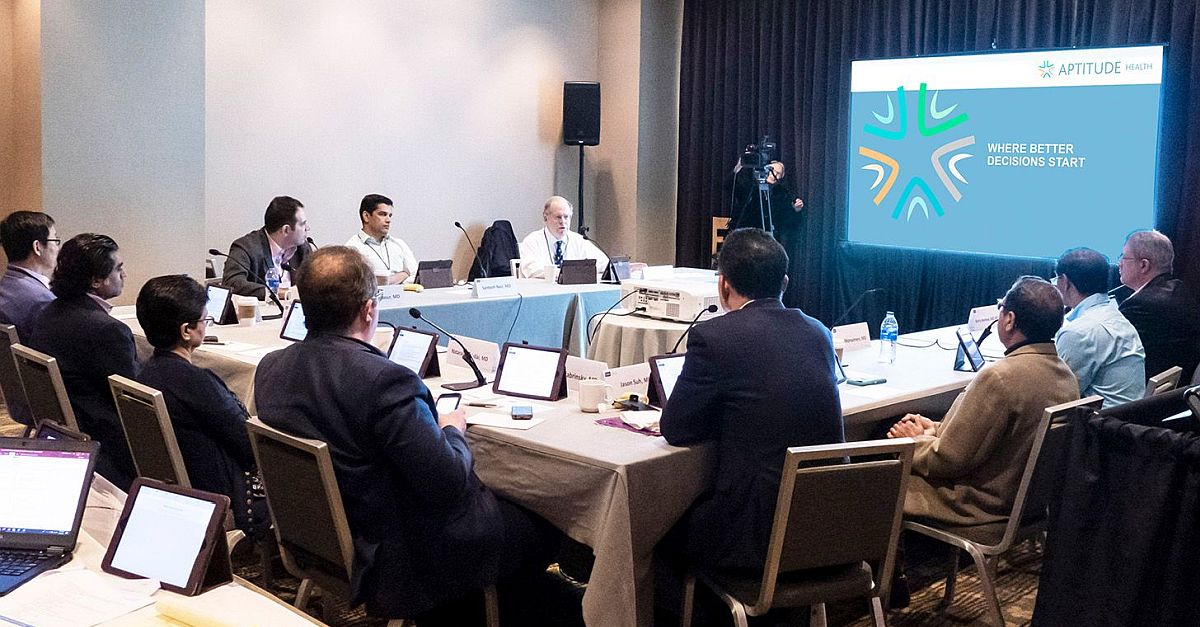At Aptitude Health, we strive to understand patterns of care that affect cancer patients not enrolled in clinical trials. We identify factors influencing prescribing habits that shape best practices and essentially get to the why.
CASES Summits are regional events where approximately 60 oncologists and hematologists from large community practices, along with leading scientific experts, gather to discuss data on distinct clinical care patterns and market issues that drive treatment decisions. Insight reports are then developed to reflect these discussions, yielding a wealth of information about community practices.
Washington DC CASES Summit Highlights From Our CMO
Here are some of the key takeaways that where uncovered last August
- In ALL, and despite the different mechanisms of action, physicians feel that blinatumomab and inotuzumab are equally effective but blinatumomab is more likely to induce MRD negativity, and the physicians are more comfortable managing the AEs associated with blinatumomab
- In first-line AML, all physicians order molecular marker tests for their patients; most begin therapy before test results return, although some wait for the results and then modify their treatment on the basis of the findings. The 7+3 regimen remains the standard of care for most young patients with good PS, though most physicians indicated they refer these patients to transplant/specialty centers for evaluation. Older patients with poor PS who are considered transplant ineligible are most often treated locally, and the combination of venetoclax + HMA is becoming a preferred treatment option in this setting
- In first-line multiple myeloma, RVd followed by transplant is the preferred current standard for transplant-eligible patients, though some physicians are beginning to use KRd in higher-risk patients. In transplant-ineligible patients, RVd is one of the standards, but some physicians are beginning to adopt dara-RVd. There is some concern whether the extra efficacy justifies the added cost, as daratumumab can be used effectively in the relapsed/refractory setting
- In lung cancer, physicians do not always rechallenge with another checkpoint inhibitor when patients progress after first-line immunotherapy. In fact, they prefer either docetaxel or a clinical trial for this group of patients. The majority of physicians test for NTRK fusion positivity in their patients; the report explains to what extent physicians use entrectinib or lorlatinib
- Treatment of ALK mutation-positive patients with lung cancer: the second-generation ALK inhibitors alectinib and brigatinib are increasingly used over crizotinib in first-line ALK mutation-positive patients. However, patients who are stable on crizotinib are generally kept on therapy. In patients for whom crizotinib fails, both alectinib and brigatinib are considered reasonable second-line options
- In breast cancer, hormone-positive first-line metastatic disease: physicians appear to have fully adopted CDK4/6 inhibitors into their treatment paradigms. In some elderly residential care settings, some physicians would favor fulvestrant and/or abemaciclib (dosed continuously), as intermittent dosing schedules can be challenging for the limited nurse resources therein. The report also highlights the go-to approach for patients with visceral disease and the differences in use of eribulin and ixabepilone
EPICS reports reflect discussions between leading scientific experts gathered to examine data on distinct clinical care patterns and market issues that drive treatment decisions. Insight reports include updates on the current and future disease landscape, drug development, management of patients, and strategic recommendations.
After the successful first “EPICS: The Value of the Patient Perspective in Oncology Health Care” that took place last September, Aptitude Health is organizing 2 new EPICS meetings on patient perspectives in oncology health care for 2020. Together with Prof Dr Matti Aapro, President-Elect of ECCO, and Dr Ian Banks, Head of the Patient Advisory Committee of ECCO, the following 2 meeting topics have been identified:
- Insight Report: Patient Perspectives and the Value of Education in Oncology Health Care
The report that will be produced from this meeting will help to elucidate the role of patient organizations in Europe, their value as stakeholders in health-related dialogues and policies, and the challenges these organizations are facing. The report will zoom in on the role of patients, caregivers, and patient organizations in cancer education: their value and best-practice examples. It will further explore the impact of social media on patient education and interactions with HCPs, and identify the best channels for patient and caregiver education. - Insight Report: Patient Perspectives and the Value of PROs in Oncology Health Care
After this meeting, participants and subscribers to the report will know the different types of patient-reported outcomes (PROs), their main characteristics, and strengths and limitations of each PRO category. The report will answer what are the optimal ways to collect PROs, and what is the role of medical apps and social media in collecting them. Will PROs in RWE influence drug development, reimbursement, and regulatory decision-makers? Can pharma support harmonizing PROs and make them a valuable tool to impact clinical decision-making and improve patient QOL?
Aptitude Health seeks no funding for the meetings organized, but the insights reports and silent observation rights are available for purchase. Each report provides key takeaways in aggregate, and analysis of event-specific discussion and integrated polling. Additionally, the reports provide an overview of the current disease landscape, as described by the consulting physicians.
To get more details about our upcoming reports and meetings, click here.
About our EVP and Chief Medical Officer Chadi Nabhan, MD, MBA, FACP
Dr Chadi Nabhan is board certified in internal medicine, hematology, and medical oncology, with special interest in lymphoid malignancies. Chadi leads and enhances the clinical operations, services, and publications globally, to align with current and future stakeholder demands. Prior to joining Aptitude Health, Chadi was chief medical officer for a Fortune 14 company. He was previously the medical director of the Clinical Cancer Center at the University of Chicago Medicine, overseeing the clinical operations of cancer clinics and supervising all aspects of cancer care delivery. He has over 300 peer-reviewed articles and abstracts and is a renowned speaker, facilitator, and moderator on cancer-related and medical business topics. He currently hosts the healthcare podcast “Outspoken Oncology.”

